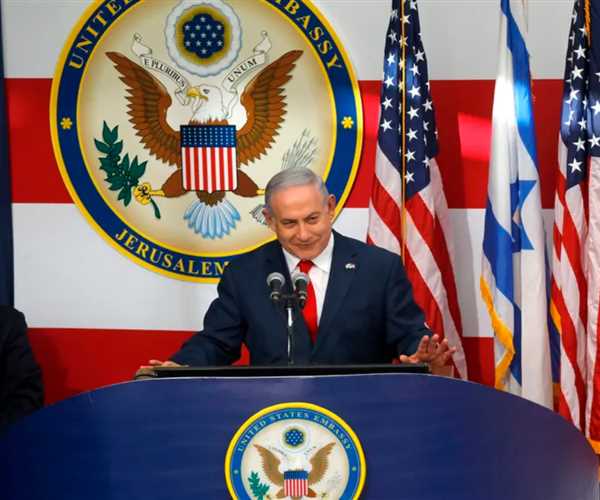The recent decision by the Trump administration to move the U.S. Embassy in Israel from Tel Aviv to Jerusalem has been met with widespread opposition from around the world. This controversial move has been met with tumultuous protests, both in the United States and internationally, and has been met with a wave of condemnation from many nations.
The relocation of the U.S. Embassy to Jerusalem is not only a violation of international law but is also seen by many as a unilateral decision that could potentially have destabilizing impacts on the Middle East region. This move has further inflamed an already volatile region and has further heightened the tensions between Israel and Palestine.
Given the very real threat posed by the relocation of the U.S. Embassy to Jerusalem, it is important for us to take action and find ways to prevent this move from going through.
Here are a few strategies that we can use to do this:
1. Speak Out: A powerful way to make our voices heard is to speak out against the decision to relocate the U.S. Embassy to Jerusalem. Engage in public discourse and voice your opinion on the matter. Participate in protests, rallies, and other forms of civil disobedience to show the world that this decision is unacceptable and should be reversed.
2. Lobby: Lobby members of Congress and other elected officials to take action against the relocation of the U.S. Embassy to Jerusalem. By pushing these elected representatives to support measures that would block this move, we can make our voices heard and hopefully prevent this decision from going through.
3. Call on the International Community: Reach out to other nations and encourage them to use their diplomatic influence in the Middle East to oppose the relocation of the U.S. Embassy to Jerusalem. This can be done by sending letters to foreign leaders, holding public demonstrations, and engaging in other forms of activism.

4. Boycott: A boycott can be a powerful tool when it comes to making our voices heard. One way to do this is to encourage citizens of other nations to boycott goods and services from companies that are associated with the relocation of the U.S. Embassy to Jerusalem.
Finally, it is important to ensure that the Palestinian people are aware of the implications of the decision and are actively engaged in the peace process. This can be done through a variety of means, including providing support to Palestinian civil society organizations, advocating for a two-state solution, and holding leaders on both sides accountable for their actions.
By taking action and speaking out against the relocation of the U.S. Embassy to Jerusalem, we can send a powerful message to the world that this move is not acceptable and should be reversed. By challenging this decision and pushing for change, we can help ensure that the U.S. Embassy remains in Tel Aviv and that peace and stability in the Middle East are maintained.
Although it is unlikely that the decision to move the U.S. Embassy to Jerusalem will be reversed, the international community can still take a stand against the decision and make sure that the potential damage it may cause is minimized. Through a combination of diplomatic pressure, public advocacy, and support for the Palestinian people, it is possible to make a difference and help ensure a brighter future for the region.